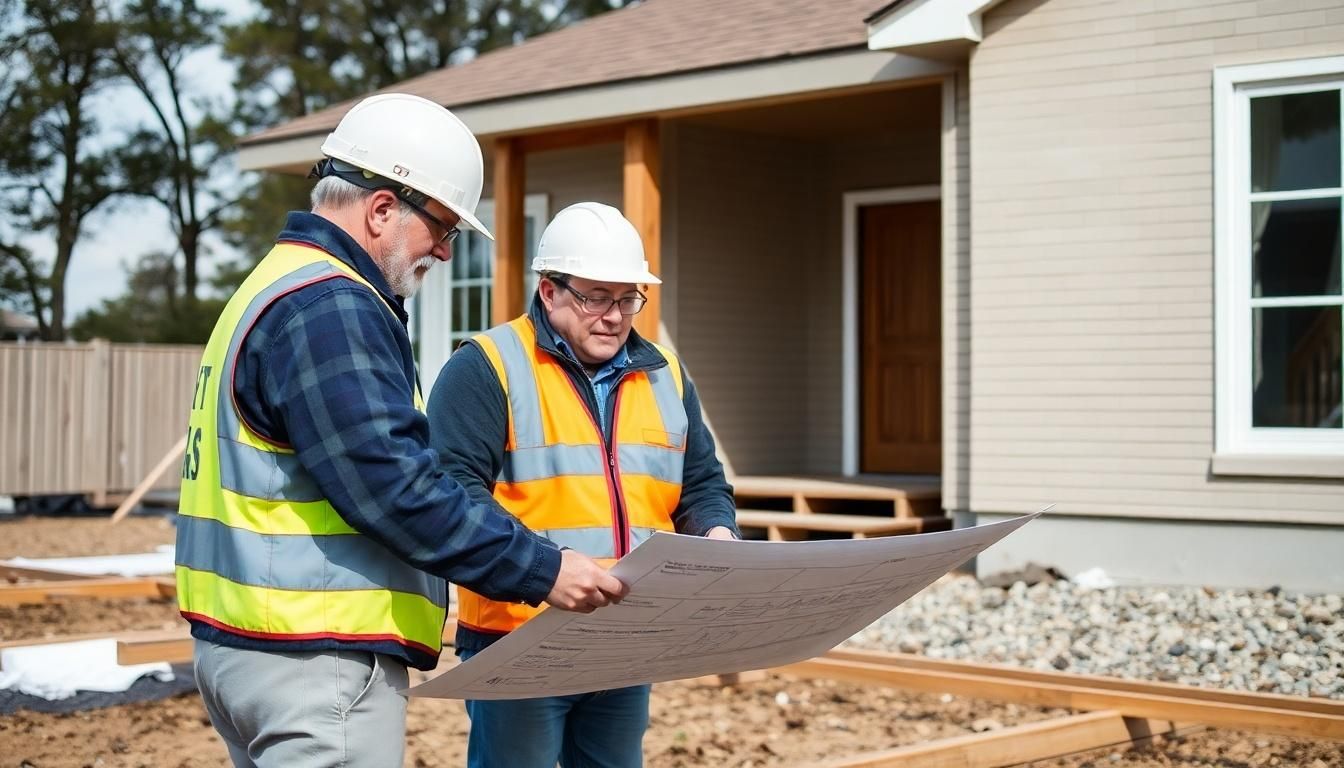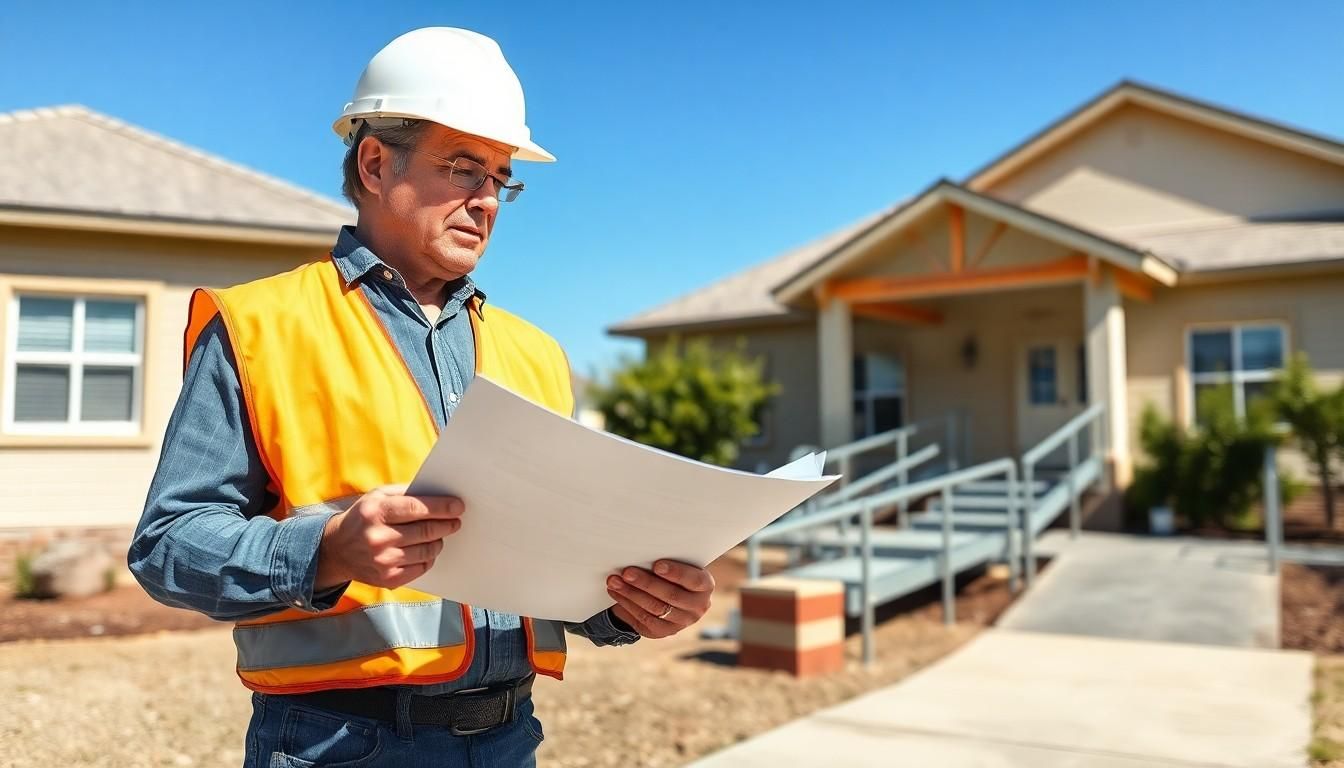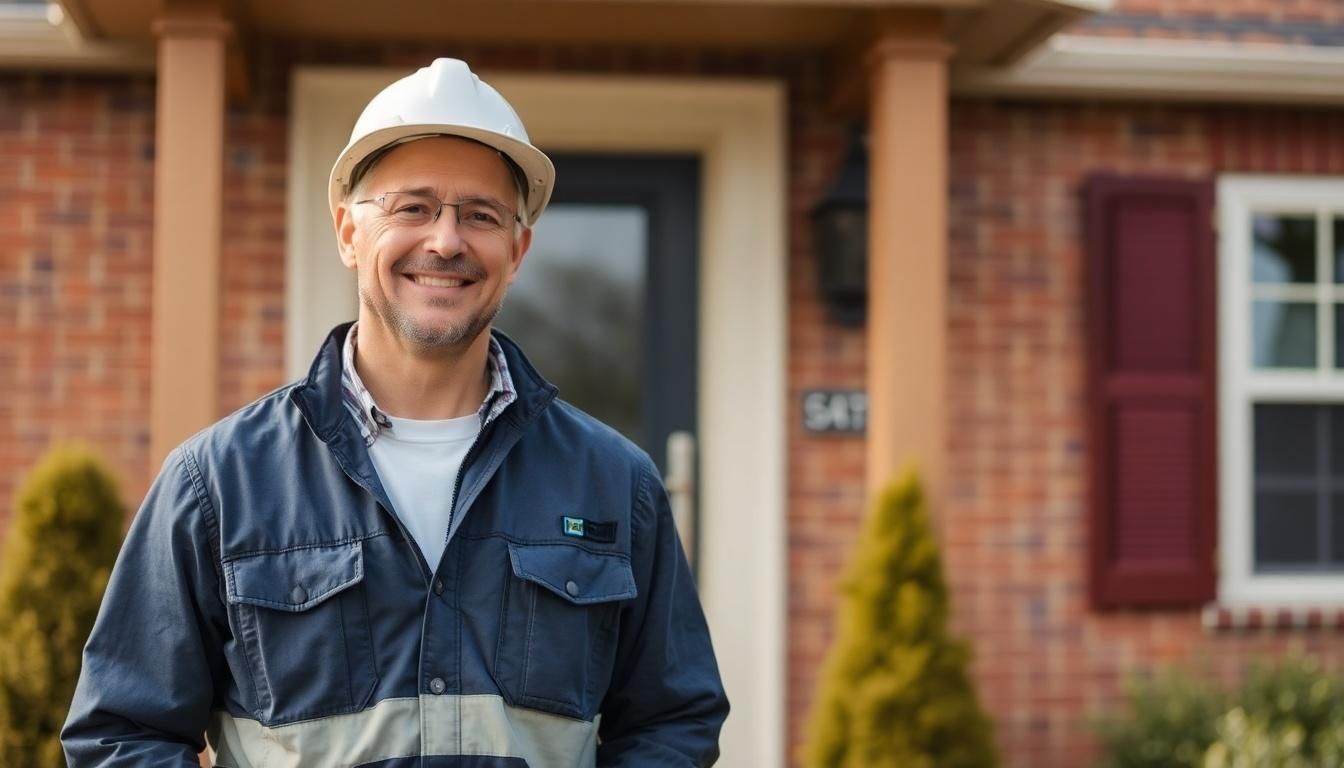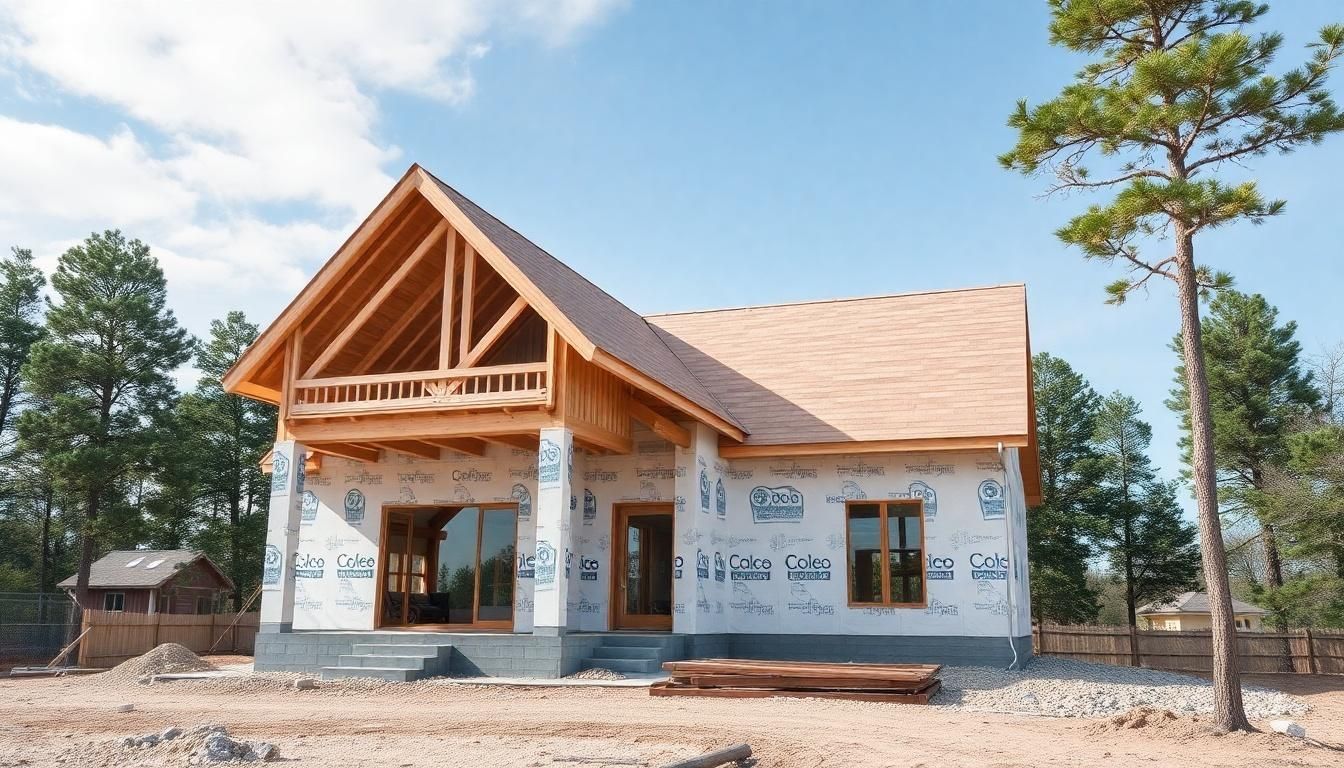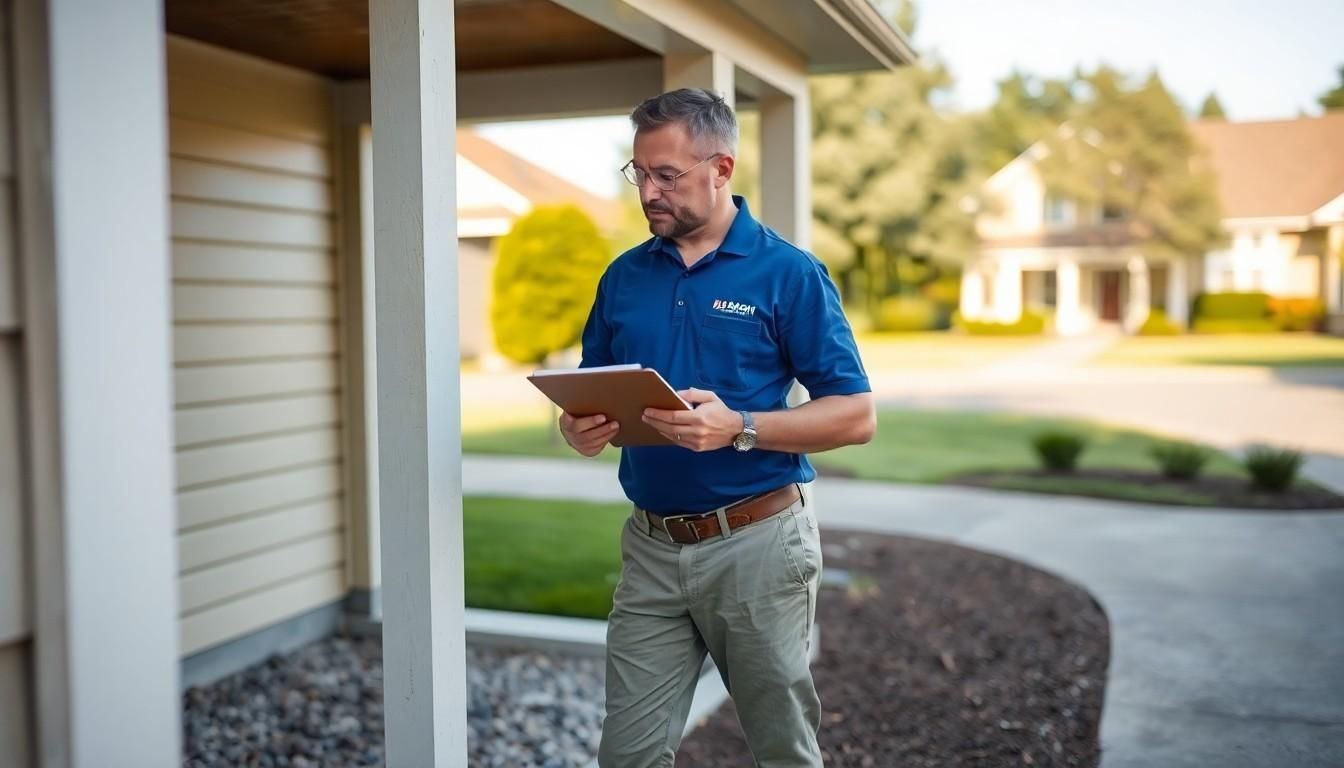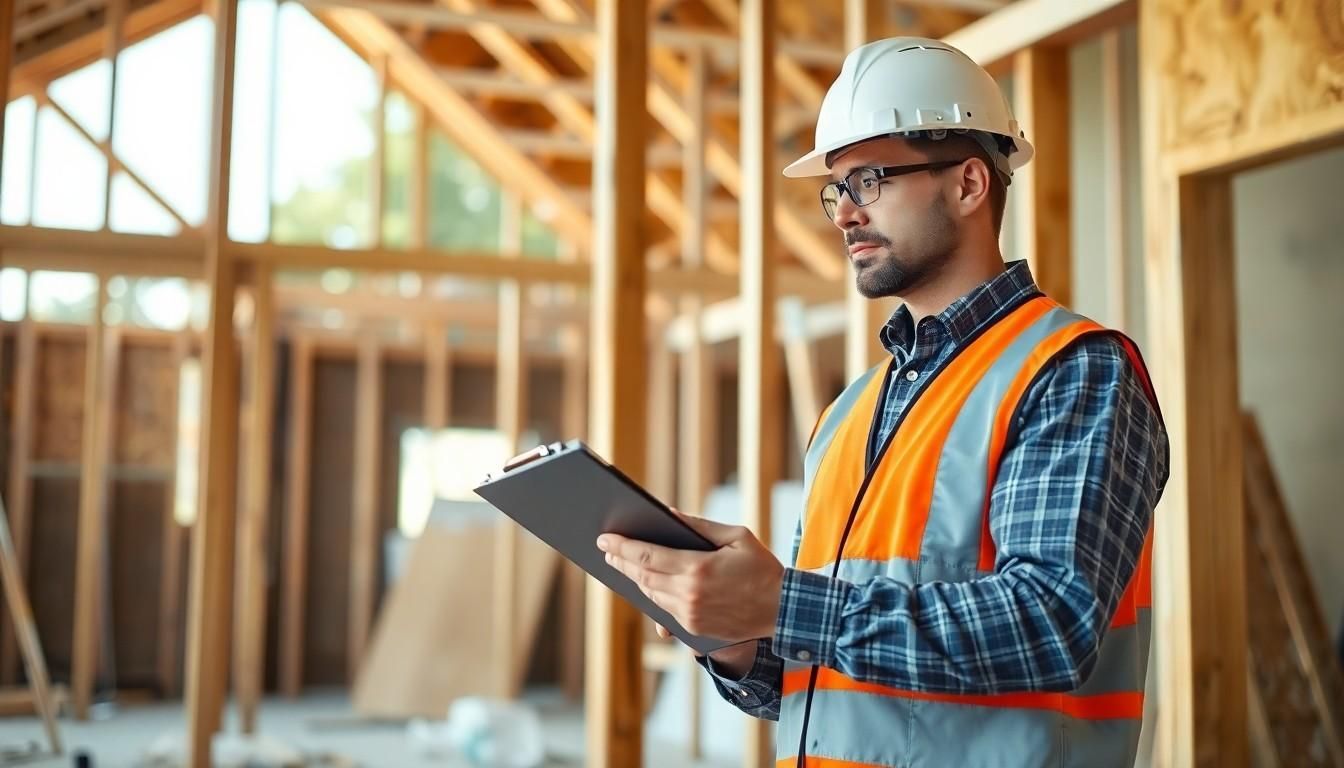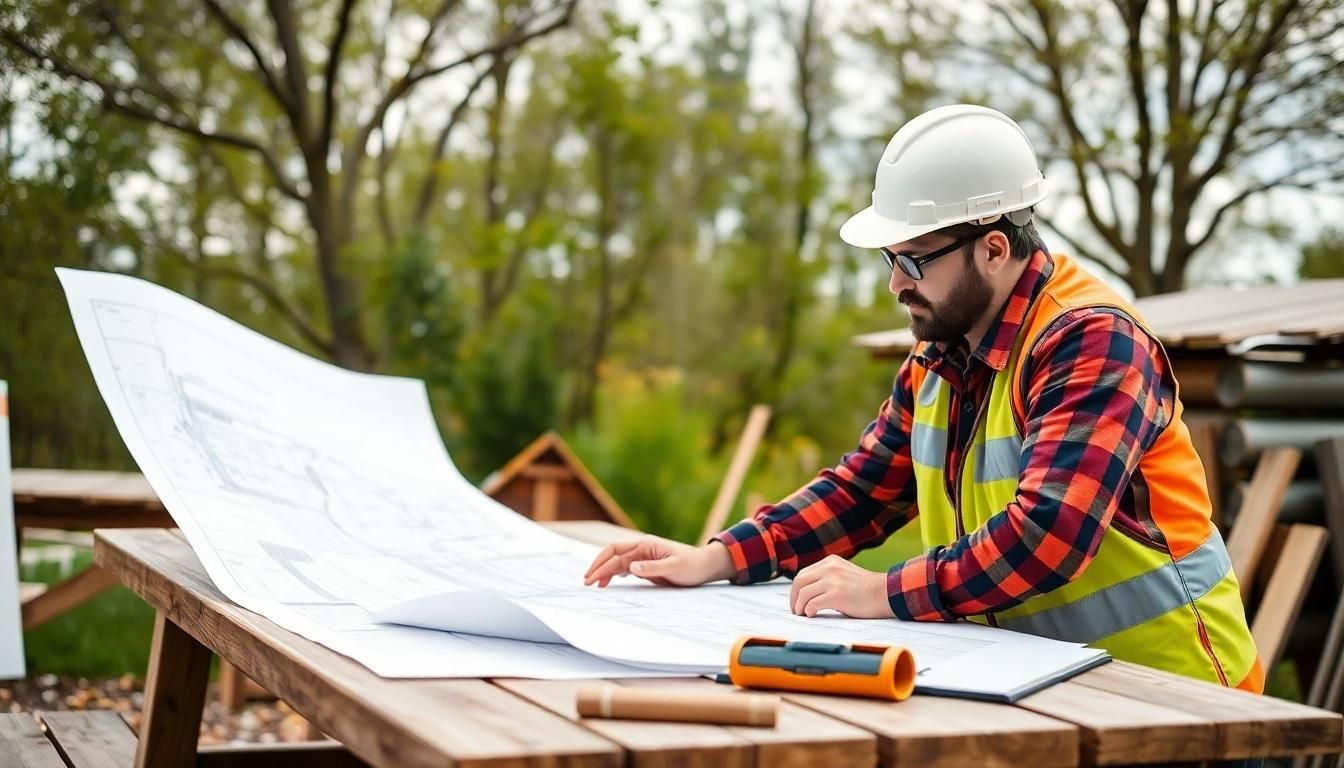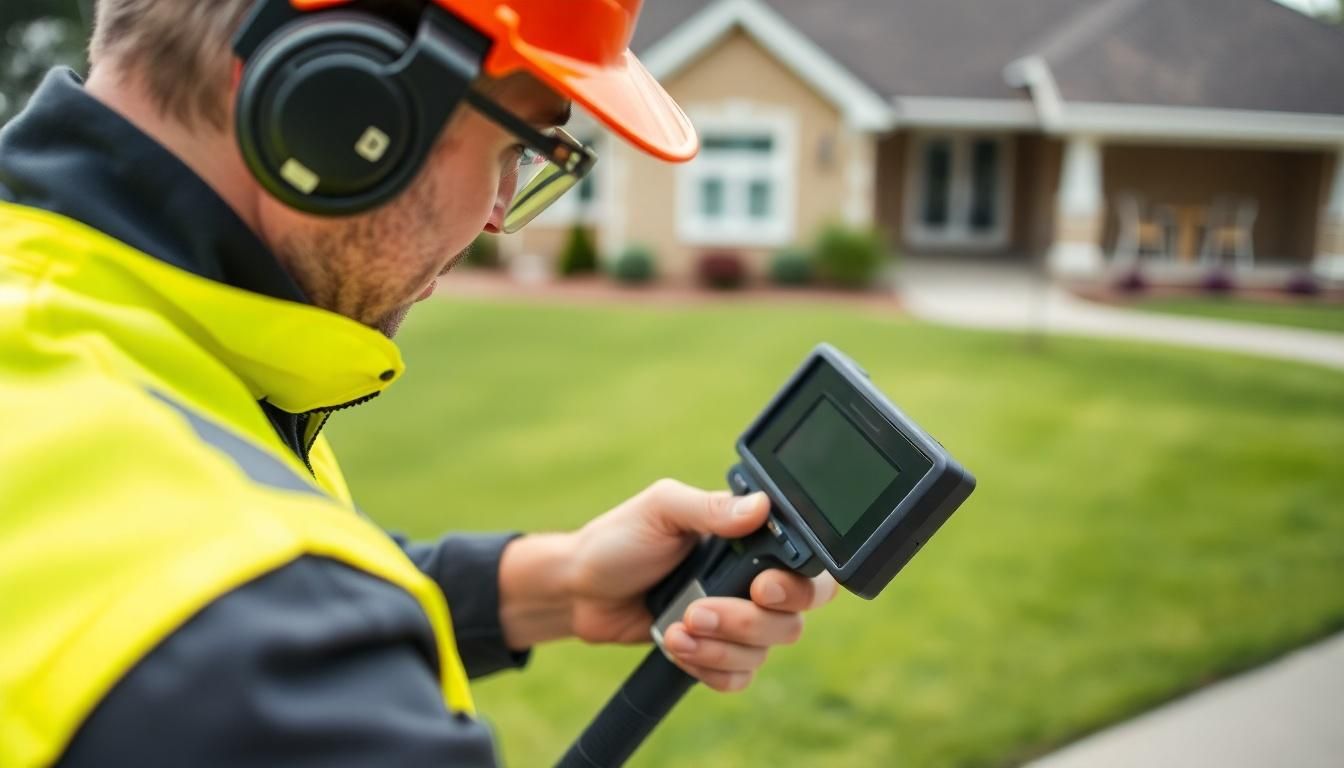Inspecting the Costs: A Guide to Comparing Home Inspection Services
Comparing prices and services offered by different home inspection companies is crucial for homeowners looking to safeguard their investment. Here's how to get started:
- Research Service Offerings: Look for companies that specialize in identifying hidden defects and safety issues, which are the backbone of a good home inspection.
- Compare Fees and Services: Fees can widely vary, with average costs ranging from $300 to $600 depending on size and age.
- Check Credentials and Certifications: Ensure inspectors are experienced and certified to spot potential hazards like structural defects or faulty wiring.
- Attend the Inspection: This allows you to ask crucial questions and understand the property's condition better.
A home inspection is more than just a check-box exercise; it's a critical step in protecting your property and financial interests. For homeowners in Greater Houston, pinpointing concealed problems like electrical faults or foundation issues can save significant repair costs and improve property safety. Inspections highlight essential fixes that may be non-negotiable, especially when it comes to structural stability and safety compliance.
Comparing Prices and Services Offered by Different Home Inspection Companies
When choosing a home inspection service, pricing can be a major factor. But it's important to understand the different pricing methods that companies use, as each has its pros and cons.
Flat Rate Pricing
Flat rate pricing is straightforward. You pay a set fee for a standard inspection, with additional costs for extra services. For example, you might see a $400 base rate with an extra $100 for add-ons or larger homes.
- Pros: Simple and easy to understand. Customers know what to expect.
- Cons: May not account for larger or more complex homes, potentially undervaluing the service.
Location-Based Pricing
Some companies adjust their fees based on the property's location. Homes in affluent areas or those further away from the inspector's base may incur higher fees. This method considers travel time and local market rates.
- Pros: Reflects local market conditions and travel costs.
- Cons: Can be undercut by companies offering flat rates.
Size-Based Pricing
Charging by the square foot or number of rooms is another method. For instance, pricing might be $0.20 per square foot, meaning a 2,000-square-foot home would cost $400.
- Pros: More revenue for larger homes, aligning fee with inspection effort.
- Cons: Complex pricing models can frustrate some clients.
Age of Home
Older homes often need more thorough inspections due to potential wear and tear. Some companies charge more for older properties, reflecting the extra time and expertise required.
- Pros: Ensures thorough inspections for older homes.
- Cons: May deter customers with older properties due to higher costs.
When comparing prices and services offered by different home inspection companies, consider these methods. Each has its benefits, and the right choice depends on your specific needs and location.
A higher price often means more comprehensive service and expertise. It's not just about finding the cheapest option but the one that offers the best value for your investment. This ensures you're not only getting a good deal but also protecting your future home from hidden defects and safety issues.
Next, we will explore how to choose a reliable home inspection service, focusing on experience, certifications, and specialized skills.
How to Choose a Reliable Home Inspection Service
Selecting the right home inspection service is crucial for ensuring your future home is safe and sound. Here are some key factors to consider:
Experience
Experience is a top priority when choosing a home inspector. An inspector with years of experience is more likely to spot potential issues that less seasoned professionals might miss. Look for inspectors who have a solid track record and have been in the business for several years. They have likely encountered a wide range of issues and know what to look for in a property.
Certifications
Certifications are a hallmark of credibility and professionalism. Reputable home inspectors often have certifications from respected organizations like the American Society of Home Inspectors (ASHI), the National Association of Certified Home Inspectors (NACHI), or the National Association of Home Inspectors (NAHI). These certifications ensure that the inspector has undergone rigorous training and adheres to industry standards.
Communication Skills
Good communication is key. A reliable home inspector should be able to explain their findings in clear, simple language. They should provide a detailed report that highlights any issues, categorizing them as major or minor defects. Look for inspectors who are open to questions and willing to walk you through their findings. Being present during the inspection allows you to ask questions and get immediate answers.
Specialized Skills
Some homes require specialized inspections, especially if there are unique features or potential issues. For example, if you're buying an older home, you might need an inspector with expertise in identifying asbestos or lead paint. Similarly, homes in certain areas might benefit from inspectors who can conduct radon or mold testing. Choosing an inspector with specialized skills ensures that all potential risks are thoroughly assessed.
When choosing a home inspection service, it's not just about the price. Consider the inspector's experience, certifications, communication skills, and specialized knowledge. These factors will help you make an informed decision, ensuring that your investment is protected.
Next, we'll dive into tips for negotiating based on home inspection findings, focusing on inspection contingencies and major repairs.
Tips for Negotiating Based on Home Inspection Findings
Home inspections can reveal a lot about a property, and these findings can be powerful tools for negotiation. Here's how you can use them to your advantage:
Inspection Contingency
An inspection contingency is a clause in your purchase agreement that allows you to back out or renegotiate the deal based on the inspection results. This is your safety net. If the inspection uncovers significant issues, you have the option to walk away without penalty. Always ensure your contract includes this contingency to protect your interests.
Focus on Major Repairs
Not all findings are deal-breakers. Focus on major repairs that affect the home's safety, functionality, or value. Issues like structural damage, faulty wiring, or plumbing leaks should be prioritized. These are the problems that can lead to costly repairs later on. Use these findings to negotiate with the seller for necessary repairs before closing the deal.
Credit or Price Reduction
If the seller is unwilling or unable to make the repairs, consider negotiating a credit or price reduction. This allows you to lower the purchase price or receive a credit at closing, giving you the funds to handle repairs yourself. This can be a win-win, as it keeps the sale moving forward while ensuring you have the resources to address the issues.
Be Prepared with Quotes
Before negotiating, gather quotes from local contractors for the necessary repairs. This gives you a clear idea of the costs involved and strengthens your position. Present these estimates to the seller to justify your request for a reduction or credit.
Work with Your Agent
Your real estate agent is a valuable ally in this process. They can help you draft a counteroffer and communicate effectively with the seller. Their expertise can guide you through the negotiations, ensuring you get the best possible outcome.
By leveraging the inspection findings, you can negotiate effectively, ensuring that your investment is protected and any significant issues are addressed before you finalize the purchase. Next, we'll explore the red flags to watch for in a home inspection.
Red Flags to Watch for in a Home Inspection
When you're buying a home, spotting red flags during the inspection is crucial. These issues can affect the safety, functionality, and value of the property. Here's what to look out for:
Electrical Damage
Electrical problems are more than just a nuisance—they can be dangerous. Look for signs of outdated wiring, such as aluminum wiring, which was commonly used between 1965 and 1973 and is prone to overheating. Inspectors will check for functional ground fault circuit interrupters (GFCIs) to prevent electrical shock. Faulty GFCIs are inexpensive to fix but vital for safety.
Dampness Signs
Water damage can lead to mold and structural issues. Inspectors will check for water stains, mold, or musty odors, which indicate past or current leaks. Pay special attention to basements and attics, as these areas are prone to dampness. If the grading doesn't slope away from the house, water could seep in and cause damage.
Uneven Temperature
Inconsistent temperatures in different rooms can signal problems with the HVAC system or insulation. Inspectors will assess the age and efficiency of the heating and cooling systems. Poor insulation or leaks in ductwork can cause energy inefficiency, leading to higher bills and discomfort.
Hidden Issues
Some issues are not immediately visible but can be detected by a thorough inspection. Foundation problems, for example, might be hidden but can be inferred from cracks in walls or uneven floors. Termite damage or asbestos presence requires specialist inspections but can significantly affect a home's safety and value.
By being aware of these red flags, you can make informed decisions and address potential problems before they become costly repairs. Next, we'll cover frequently asked questions about home inspection costs to help you understand what to expect financially.
Frequently Asked Questions about Home Inspection Costs
What is the average cost of a home inspection?
The cost of a home inspection typically ranges between $300 and $600, though it can vary based on several factors like the size and age of the home. For instance, larger homes often require more time and resources to inspect, which can increase the cost. Similarly, older homes might need a more detailed inspection due to outdated systems or potential issues with wiring and plumbing, leading to higher fees.
How do you determine the pricing for home inspections?
Pricing for home inspections is influenced by a combination of factors. Market research plays a crucial role, as it helps inspectors understand what others in the area are charging. This involves competitor analysis to ensure pricing is competitive yet fair.
Service offerings also impact pricing. Inspectors might charge a flat rate or adjust prices based on the home's size, age, or location. For example, some inspectors set a flat fee for homes up to a certain square footage and add incremental charges for larger properties.
What additional services can be included in a home inspection?
Beyond the standard inspection, many companies offer additional services to provide a more comprehensive evaluation of the property. These can include:
- Mold Testing: Identifies potential mold issues that could affect health and property integrity.
- Radon Testing: Detects radon levels, a radioactive gas that can be harmful at high concentrations.
- Thermal Imaging: Uses infrared cameras to find issues like poor insulation, electrical hotspots, or leaks that aren't visible to the naked eye.
These specialized services often come with additional costs but can be invaluable for identifying hidden problems that might not be covered in a basic inspection.
Conclusion
Choosing the right home inspection service is crucial for ensuring the safety and longevity of your property. Accurate Home and Commercial Services stands out in the Greater Houston area with their comprehensive inspections and commitment to customer satisfaction.
With a team known for their extensive experience and attention to detail, Accurate Home and Commercial Services ensures that every inch of your property is thoroughly evaluated. Their dedication to property safety means you can trust them to identify hidden defects and potential safety issues, providing you with peace of mind.
Whether you're buying a new home or maintaining your current one, their full-service inspections are designed to meet your needs. From standard evaluations to specialized services like mold and radon testing, they offer a range of options to ensure your property is safe and sound.
For those in the Greater Houston area, including locations like The Woodlands, Spring, and Baytown, Accurate Home and Commercial Services is a reliable choice. Their commitment to delivering high-quality inspections makes them a trusted partner in protecting your investment.
To learn more about their services and how they can help you, visit their home inspections page and take the first step towards a safer home today.
